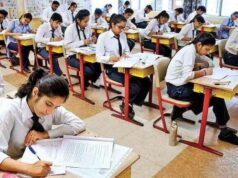WTO Ministerial Conference in Abu Dhabi concludes without significant results

The Ministerial Conference is the WTO’s highest decision-making body and is usually held every two years. The 13th Ministerial Conference opened on Monday in Abu Dhabi under the chairmanship of Thani bin Ahmed Al Zeyoudi.
The conference ended on Saturday night after several days of negotiations. The conference was scheduled to end on Thursday, but organizers postponed the final session several times as delegates failed to reach consensus on key issues related to the revision of global trade rules.
“During the long hours of negotiation here, we saw moments of difficult but rewarding cooperation as ministers overcame intense disagreement, engaged in tough discussions and found common ground.
The beauty of the WTO is that each member has an equal voice, but that also comes at a cost,” WTO Director General Ngozi Okonjo-Iweala said, commenting on the outcome of the conference at the closing session.
According to her, delegates achieved some important results and failed to complete others. According to the conference chairman, UAE Minister of State for Foreign Trade Thani bin Ahmed Al Zeyoudi, work on issues that could not be resolved in Abu Dhabi will continue in Geneva. “While we may not have accomplished everything we set out to achieve, we have delivered some much needed results and all other workstreams, efforts will continue in Geneva,” the minister said at the end of the talks.
An achievement of the 13th Ministerial Conference was the first formal accession of two new members in eight years, the Union of the Comoros and the Democratic Republic of Timor-Leste, bringing the number of WTO members to 166. The accession of the island nations was approved on the first day of the meeting.
As expected, the Abu Dhabi ministerial meeting failed to resolve a key systemic issue for the organization: the collapse of the Appellate Body. The dispute settlement platform has not been functioning since December 11, 2019, due to the expiration of the terms of the arbitrators. The appointment of new judges is being blocked by the United States, which has accused the Appellate Body in particular of violating established deadlines for considering appeals and has called for a fundamental reform of the dispute settlement mechanism. Under WTO rules, the appointment of arbitrators requires the consensus of all member states.
For India the outcome of the WTO was good as the country continues to retain its full policy space to protect the interests of farmers and fishermen in every respect. New Delhi’s procurement of food grains for distribution among the poor continues uninterrupted and without any hindrance.
“India continues to retain full policy space for the benefit of our farmers, our fishermen, and in every respect, we have been able to take India’s interests to the highest level possible,” the Indian Minister Shri Piyush Goyal told reporters in Abu Dhabi after the five-day meeting of the Trade Ministers of 166-member World Trade Organisation (WTO).
As the members were not able to reach a consensus on key issues such as agriculture and fisheries subsidies, the talks that were scheduled to end on February 29 got extended for a day.
The talks at the WTO’s ministerial conference ended with no decision on issues such as finding a permanent solution to public food stockpile and on curbing fisheries subsidies, but the members agreed to further extend the moratorium on imposing import duties on e-commerce trade for two more years.
India successfully pushed the food security issue and the country did not yield any ground on protecting the interest of poor farmers and fishermen as well as on other issues. In the proposed fisheries subsidies agreement aimed to curb subsidies that lead to over capacity and over fishing, India found several ambiguities on the proposals that were on the table.
Some of the subsidies that certain countries give to their resource-poor fishermen were sought to be excluded.
Besides, definitions were not satisfactory and several areas where deeper consultations and greater degree of flexibility was required to ensure a fair and balanced agreement, were not possible in such a short period of time.
On further extension of the duty moratorium on e-commerce trade, the Minister said that India was “not necessarily opposed” to it fully.
Since the members had not discussed the issues pertaining to the moratorium during the time between MC12 (happened at Geneva June 2022) and MC 13, such as its scope and its impact on different economies, “we believe that it’s in the best interest that we continue this e-commerce moratorium”, he said.
When asked about the effort of certain developed countries to push non-trader issues like investment facilitation agreement, environment and labour in the WTO, Mr. Goyal said India has been successful in making sure that such issues cannot become part of the WTO.
“Since investment is not part of the WTO and we did not allow to come in. Similarly, an effort was made to bring industrial policy discussions, again an area that India believes is not a part of the original Marrakesh (Morocco) framework.
“So while the effort can be made to bring in non-trade issues, I think India has successfully made sure that no non-trade issue can be allowed to be brought before the WTO,” he said.



